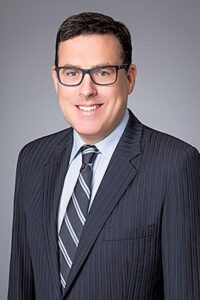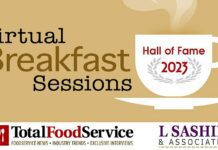
Article contributed by Jonathan J. Boyles, Ellenoff Grossman & Schole LLP
Employers should start preparing for the rollout of the New York Secure Choice Savings Program (“NYS Program”).
The law requires all New York State businesses with 10 or more employees, and that have been in existence for at least two years, to participate in the state-sponsored retirement program, unless the employer already offers a retirement plan to its employees (for example, a 401(k), 403(b) or SIMPLE IRA plan).
You may recall that we wrote a briefing about a similar auto enrollment program enacted by New York City, which would have applied to employers with five or more employees. The City Program has been put on hold in light of the NYS Program.
The NYS Program will create a Roth individual retirement account (“Roth IRA”) for each covered employee. Employee contributions to the Roth IRA are funded by automatic payroll deduction from the employee’s paycheck, with a default 3% contribution rate. Employer contributions are neither required nor permitted.
The 10-employee threshold is determined by looking back to the previous calendar year to see if at least 10 employees were continuously employed during the year. All employees will be counted in determining whether the 10-employee threshold is met. The law makes no distinction between part-time or full-time employees or employees who are minors.
While all employees are counted to determine whether the employer is covered by the law, the employer is only required to enroll employees who are age 18 or older. The City Program excluded part-time employees, while the NYS Program requires all employees who are at least age 18 to be enrolled, regardless of whether they are full-time or part-time.
As advertised, an employer’s obligations are supposed to be limited. The employer does not sponsor the NYS Program or have any liability for the investment results or administration. The employer’s only duty is to enroll in the NYS Program and to deduct employee contributions from payroll and send them on to the NYS Program.
Administering payroll, however, is a thankless task that may sound easy, but it is always a challenge (a challenge under tight deadlines). Adding a Roth IRA deduction, especially for a program that is not integrated with an employer’s payroll provider/system, creates multiple opportunities for error. When you take into account that an employee can change the contribution rate or opt-out of participation, the employer’s bookkeeping process will become more complex.
Development of the NYS Program has begun, with the New York State Secure Choice Savings Board having up until October 2023 to finalize the program design and implementation. Once the New York Secure Choice Savings Board opens the program, employers must enroll within nine months.
Until now, employers may have seen a retirement plan as a “nice to have,” but not as a necessity for employee retention, or as an administrative burden that could not be supported. The additional regulation and administrative burdens created by the NYS Program may cause the pendulum to swing for employers that have not yet offered retirement plans.
By offering a retirement plan, an employer can avoid the NYS Program’s rules. An employer’s options include:
- Establishing its own 401(k) plan (or 403(b) plan for non-profits). This has become streamlined with IRS pre-approved plans. The employer selects from a checklist (adoption agreement) to pick its plan design.
- Participate in an Association Retirement Plan, which pools unrelated employers that work in the same industry or region.
- Participate in a Pooled Employer Plan, which is similar to an Association Retirement Plan, but under the 2019 SECURE Act, unrelated employers can join together even if they are not in the same industry or region.
- Participate in a plan sponsored by a Professional Employer Organization (“PEO”), which can also provide human resources and payroll support, along with benefit plan offerings.
- Participate in a multiemployer plan for employees covered by a union contract.
Many of these options allow employee retirement contributions to be integrated with payroll (avoiding the burden of manual adjustments and potential for error). In addition, the IRS limits for these retirement plans are substantially higher than the IRA limits, offering employees additional opportunities to save their own money for retirement. In 2023, the maximum 401(k) employee contribution is $22,500 ($30,000 if you’re age 50 or older), while the IRA limit is $6,500 ($7,500 if you’re age 50 or older).
Under the recently-enacted SECURE Act 2.0, employers are entitled to additional tax credits when sponsoring their own retirement plans. Employers with less than 50 employees are eligible for a three-year start-up tax credit equal to 100% of the administrative costs for a new plan (up to a maximum credit of $5,000). For employers with less than 100 employees, existing law provides for a 50% tax credit.
In addition, SECURE Act 2.0 provides for additional tax credits for employer contributions to a new plan. The additional credit lasts for five years and is equal to the amount of employer contributions, up to $1,000 per employee. This credit applies to employers with up to 50 employees and is phased out for employers with between 51 and 100 employees. None of these credits is available for an employer’s participation in the NYS Program.
 Jonathan J. Boyles is a partner at Ellenoff Grossman & Schole LLP, where he specializes in employee benefits and executive compensation law. Jonathan J. Boyles can be reached at JBoyles@egsllp.com or via phone at 212-370-1300.
Jonathan J. Boyles is a partner at Ellenoff Grossman & Schole LLP, where he specializes in employee benefits and executive compensation law. Jonathan J. Boyles can be reached at JBoyles@egsllp.com or via phone at 212-370-1300.

























